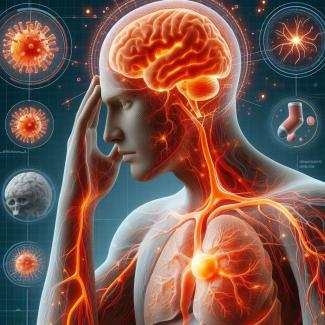
Depression in old age, often referred to as late-life or geriatric depression, can result from various factors, and it's essential to understand these causes and how to prevent or manage them. Keep in mind that depression is a treatable condition, and many older adults can lead fulfilling lives with proper support and intervention.
Causes of Depression in Old Age:
- Physical Health Issues: As people age, they are more likely to develop chronic health conditions, such as heart disease, diabetes, and arthritis. These physical health problems can contribute to depression, especially if they limit one's mobility or independence.
- Isolation and Loneliness: Older adults may face social isolation due to factors like retirement, the loss of friends and family, or physical limitations that make it challenging to maintain social connections.
- Grief and Loss: The loss of a spouse, friends, or loved ones can lead to profound grief and, in some cases, depression. Coping with these losses can be particularly difficult in older age.
- Cognitive Decline: Deterioration in cognitive function, such as mild cognitive impairment or dementia, can increase the risk of depression.
- Financial Stress: Limited financial resources or concerns about financial stability in old age can lead to depression.
- Medication and Medical Treatments: Some medications used to treat physical health conditions can have depressive side effects. It's essential for healthcare providers to monitor and adjust medication if necessary.
- Psychological and Emotional Factors: Feelings of worthlessness, hopelessness, or low self-esteem can contribute to depression. Past trauma, unresolved issues, and untreated mental health conditions can also play a role.
Ways to Avoid or Manage Depression in Old Age:
- Stay Physically Active: Regular exercise can help improve mood, reduce stress, and maintain physical health. Consult with a healthcare provider for an appropriate exercise plan.
- Maintain a Healthy Diet: Proper nutrition is crucial for overall well-being. A balanced diet can support both physical and mental health.
- Social Engagement: Foster and maintain social connections. Join clubs, groups, or engage in activities that interest you. Stay in touch with family and friends.
- Seek Professional Help: If you experience symptoms of depression, such as persistent sadness, loss of interest, or changes in sleep and appetite, consult a mental health professional. Treatment options may include therapy, medication, or a combination of both.
- Manage Chronic Health Conditions: Work closely with your healthcare provider to manage any chronic health conditions. This can help minimize the impact of physical health issues on your mental well-being.
- Cognitive Stimulation: Engage in activities that stimulate your mind, such as puzzles, reading, or learning new skills. This can help maintain cognitive function and reduce the risk of depression.
- Financial Planning: Plan for your financial future to reduce concerns about economic stability in old age. Seek financial advice and explore resources available for seniors.
- Mental Health Awareness: Be aware of your emotional well-being and seek help when needed. Don't hesitate to discuss your feelings with loved ones or professionals.
- Medication Management: If you're taking medications that may contribute to depression, discuss this with your healthcare provider. They can adjust your treatment plan as necessary.
- Holistic Approaches: Explore complementary therapies, such as mindfulness, meditation, or yoga, which can help reduce stress and improve overall well-being.
Remember that depression is a treatable condition, and there is no shame in seeking help. With the right support and strategies, you can promote healthy aging and maintain good mental health in your later years.






